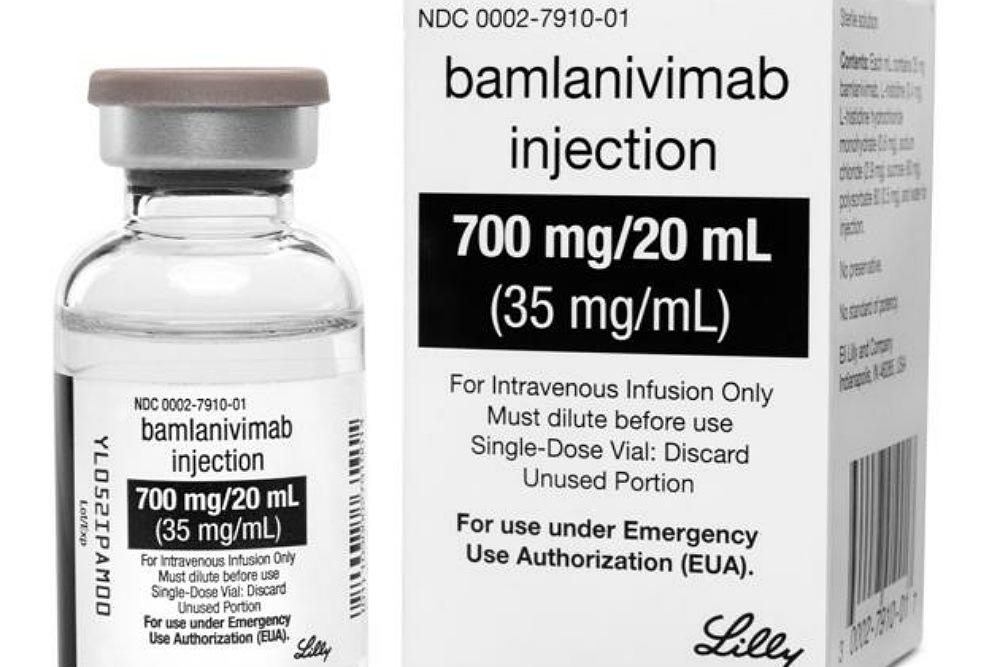County Commissioners Warned of Uptick in Asymptomatic Positives
As the state and county are looking at what many experts are calling an uncontrolled surge of COVID-19, the familiar refrain to stay home whenever possible and wear a mask when around people you don’t live with continues unabated. Here are today’s bullet points:
- County commissioners warned of uptick in asymptomatic positives;
- Dallas County hospitalizations may trigger rollback soon;
- Medical City offering bamlanivimab antibody infusions.
County Commissioners Warned of Uptick in Asymptomatic Positives
Dallas County health officials reported 1,179 new positive cases of COVID-19 Tuesday, with 1,096 confirmed cases and 83 probable cases.
The county also reported eight deaths, including a Dallas man in his 60s with no underlying high-risk health conditions, a Grand Prairie man in his 60s, an Irving woman in her 60s, a Grand Prairie woman in her 70s, a Dallas woman in her 70s, a DeSoto man in his 70s, a Dallas man in his 70s, and a DeSoto man in his 80s. Unless noted otherwise, all had underlying high-risk medical conditions.

The county said that the number of COVID-19 hospitalizations Monday was 806 patients. Emergency room visits for COVID-19 symptoms represented about 22% of all ER visits, according to information reported to the North Central Texas Trauma Regional Advisory Council.

A provisional total of 1,282 confirmed and probable COVID-19 cases were diagnosed in school-aged children (5 to 17 years) during the week ending Nov. 14, a three-fold increase from five weeks earlier.
Since Nov. 1, there have been 4,907 COVID-19 cases in school-aged children and staff reported from over 704 separate K-12 schools in Dallas County, including 550 staff members. A total of 1,282 confirmed and probable COVID-19 cases were diagnosed in school-aged children (5 to 17 years) – which is 50% more than the number of cases in this age group reported during the second highest peak week of cases in July. Since Nov. 1, there have been 130 COVID-19 cases in children and staff reported from 97 separate daycares in Dallas County.
The county is also reporting 95 active long-term care facility outbreaks, with 798 cases over the past 30 days, including 309 staff members. Twenty-seven have died.
“This is the highest number of long-term care facilities with active outbreaks reported in Dallas County since the beginning of the pandemic,” the county report said.
There are also more than 20 clusters of cases in congregate-living facilities like homeless shelters, group homes, and halfway homes, with 168 cases reported over the past month, including one facility with 87 confirmed cases.
“Today we have 1,179 new COVID positive cases and eight deaths,” said Dallas County Judge Clay Jenkins. “Most labs that did not report over the holidays or did not test for several days over the holidays are back online and tomorrow’s numbers should be representative of a typical day of testing.”
Jenkins also pointed to a report from Dr. Deborah Birx and the National Coronavirus Task Force that had been sent to Gov. Greg Abbott. That report contains recommendations for Abbott in light of the surge in cases the state is experiencing, asking the governor to do more to limit crowd sizes, among other things.
Here’s a copy of the recommendations from @realDrBirx that weren’t shared with local leaders or the public. @GovAbbott has not acted on them. A watchdog group got this through @FOIAFeed. Drs have been requesting these for months.
— Clay Jenkins (@JudgeClayJ) December 1, 2020
https://t.co/2XG4FyiVfL
“These recommendations mirror the recommendations that the Public Health Committee, made up of local experts in infectious disease, epidemiology and public health in Dallas County, have been asking of Gov. Abbott for over a month,” Jenkins said. “It’s unknown whether the governor will act or to what extent, but you need not wait for government action to recognize that the health experts on the national and the local level are telling us it is not safe to go to crowded places, we should avoid get-togethers with people outside our family, and we should wear our mask whenever around others.”
Additionally, Jenkins told county commissioners at their Tuesday meeting that Parkland Hospital is seeing an uptick in asymptomatic positivity in patients seeking care for non-COVID related procedures.
“About 12 percent of that population—one in eight—are testing positive without showing symptoms,” D Magazine’s Matt Goodman reported.
Dallas County Hospitalizations May Trigger Rollback Soon
Tuesday marked five straight days where at least 15% of North Texas hospital beds were occupied by patients with COVID-19, according Texas Department of State Health Services data, Goodman pointed out.
Gov. Greg Abbott issued an executive order in October that allows for further restrictions – a “ratchet back” plan – if some areas experience spikes.
That order mandates that trauma service regions that have COVID-19 patients in more than 15% of their beds for seven consecutive days will trigger rollbacks, such as bar closures; reduction of occupancy for restaurants, stores, movie theaters, and bowling alleys to 50%; and postponement of elective procedures.
“Stop going into restaurants, certainly stop going to any bar, bar-slash-restaurant-turned-bar, sure as heck stop gathering for those family gatherings,” said Dr. Mark Casanova, the president of the Dallas County Medical Society. “I think that’s where we’ve had our knees taken out from under us is those family gatherings and friend gatherings. Enough of those people do that on enough of a scale and you see exactly what we’re seeing in viral transmission.”
Medical City Offering Bamlanivimab Antibody Infusions

Medical City Healthcare hospitals now have a supply of the monoclonal antibody therapy Bamlanivimab, the healthcare system announced Wednesday.
The infusions are available on a very limited basis for patients who have tested positive for COVID-19 and have other high-risk factors.
The FDA has authorized the emergency use of Bamlanivimab for the treatment of COVID-19 under an Emergency Use Authorization (EUA). The therapy is intended for treatment of mild to moderate positive COVID-19 adult and pediatric patients over the age of 12 who are high risk to develop severe COVID-19. High-risk conditions that may be eligible for this treatment include obesity, chronic kidney disease, COPD, diabetes, immunosuppressive disease, and heart disease.
In children, sickle cell disease, neurodevelopmental disorders and asthma are also among several additional considerations for eligibility.
“Medical City Healthcare is committed to excellent patient care and offering this monoclonal antibody treatment can help make a meaningful impact in the fight against COVID-19,” says Miguel Benet, MD, Medical City Healthcare division chief medical officer. “As part of HCA Healthcare, one of the nation’s leading providers of healthcare, we have the resources to provide support and solutions to our patients, colleagues and communities, including the latest approved treatments for COVID-19.”
Patients who meet the criteria for treatment will receive information on how to schedule treatment on an outpatient basis at infusion centers located at Medical City Dallas and Medical City Fort Worth. Bamlanivimab is investigational because it is still being studied. Medication supply is limited and administered based upon availability and patients must obtain a referral from a Medical City Healthcare ER physician. Patients eligible for therapy will receive one dose by intravenous infusion over the course of one hour.
Bamlanivimab is not authorized for use for patients who are hospitalized due to COVID-19, require oxygen therapy due to COVID-19, or require oxygen due to another underlying medical condition.
To find more updates and learn more about safety measures at Medical City Healthcare facilities, visit the hospital’s Coronavirus Resource Hub.









